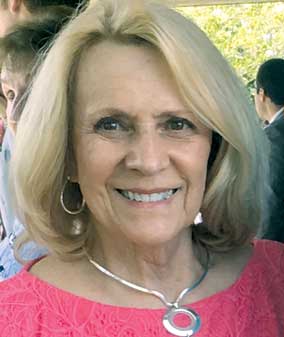
Thanks for stopping by and taking time to learn about a powerful new tool to improve dementia care. It has excellent results to its name thanks to impressive field-testing and it’s time to expand it.
Long term care facilities can use this standardized tool and its valid data to improve their dementia care plus identify the cognitive skills and abilities of their memory impaired residents.
The goal of our project was to reduce the use of antipsychotic medications by implementing non-pharmacological tools and approaches to improve the lives of residents at the SNFs.
It improves care and prevents healthcare professionals from making false assumptions regarding residents cognitive status.
Often times the assumption is made that just because an individual speaks well, therefore they must think well or just because an individual doesn’t speak, therefore we assume they have lost their ability to think. This mismatch approach to assess cognitive abilities in dementia patients ignites behavior problems for them, creates difficult circumstances for the care staff and sends everyone involved on a downward spiral of miscommunication right from the beginning of the care plan process.
Healthcare professionals need vital pieces of cognitive information regarding the care of elderly patients who are experiencing memory loss. Each patient’s Cognitive Status must be identified so healthcare professional can develop appropriate plans of care that match the individuals cognitive skills and abilities.
We must identify how much residents understand before we give them health care instructions whether they are in the hospital, healthcare facility or at home.
Generally speaking, it’s encouraging you’re looking for something to bring quality of dementia care up. This will be that. It is a big, powerful tool, made possible by a grant from the Ohio Department of Medicaid, approved by the Centers for Medicare & Medicaid Services.
In the healthcare world, we’re kind of way behind in looking for a cognitive assessment that is strictly a cognitive assessment, not one that requires language to answer questions.
We had the opportunity to train and certify healthcare professionals in northwest Ohio and they took to it eagerly. The numbers in our article are just phenomenal, and most importantly, the dementia care got better.
In brief, we developed an internal worksheet that drives the care plan for the resident. It’s what everybody should wish for.
Providers who signed up for the three-year project included 40 healthcare facilities in northwest Ohio. We wound up with statistics from about 110 dementia caregivers when all was said and done.
In short, I want us to be at the forefront of improving dementia care for their residents. We are missing the importance of including each resident’s Cognitive Status in their care plan.
The valid, reliable cognitive assessment eliminates a lot of guessing on the staffs part and reduces unnecessary stress on dementia residents. This is improvement for everybody.
It can answer difficult questions for family members whose loved one is experiencing memory loss and the healthcare professionals who care for the individual.
Questions such as: Are they safe home alone? Should they be driving? Can the manage their bill paying? Can they manage their medications properly? Do they understand healthcare instructions from their doctor? Are they capable of following discharge instructions from the hospital?
Here’s a link to learn to read the full scoop about our research for yourself.
Barbara Brock is a published research author, Reality Comprehension Clock Test (RCCT ) expert, healthcare educator and dementia care expert, as well as the owner of the Toledo, OH-based Communication Art Inc.




